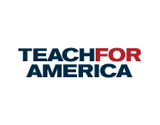By: David Ross
Consider this scenario. You’ve just landed that coveted job or internship interview. The prospect of this new opportunity is exciting and you can already envision your first day at work. All that remains is a bit of interview prep, acing your interview and presto – you’re good to go.
So you figure you’ll do some homework to get ready for the interview – review a list of possible questions, research the company…you know, traditional interview prep. Often, people will ask me: how should I prepare for my upcoming interview? What specific questions will I be asked? Now, generally speaking, interviewers may ask different types of questions: fit questions, technical questions, behavioral questions, just to name a few. And certainly, the infamous “Tell me about yourself” and “Walk me through your resume” standbys never get old. But no one can ever predict exactly what questions will be asked by whom in advance. Believe me, if I could look into a crystal ball and reveal every single question you will be asked, I would. (If I could look into a crystal ball, to see the next winning lottery numbers, I’d do that too – but I digress.)
Given that interviewing is a skill that can improve with practice, definitely take advantage of opportunities to participate in a mock interview. Anyone can attempt to guess in advance how well they will interview – but at the end of the day, all that creates is pure speculation. Why not take the time to practice some questions and put yourself to the test? An added benefit of a mock interview is feedback on your performance. Are you tapping your foot inadvertently? Do you have a penchant for minimal eye contact? Inclined to use fillers (“like” and “um”) when you get nervous? All of these things can happen and have happened when candidates interview for positions. These tendencies all can be corrected – but that’s much easier when they are brought to someone’s attention.
Career Services provides a plethora of resources to help you prepare for interviewing – including mock interviews. So you have great resources already at your disposal. Just remember – practice, practice, practice…








